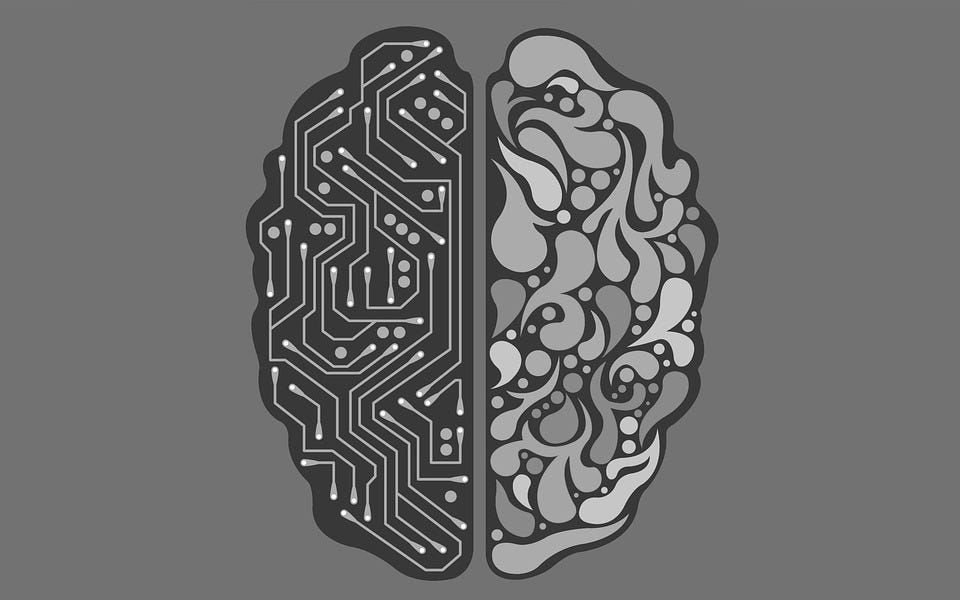An AI Story — Part 1: Technological Consumerism

Written By AI
I wish the statement above were true; I wish I could say this post was written by a deep learning model I had written that had been trained on all my blog data to write exactly like me.
Not yet…
Living in Africa, it’s easy to allow all the technological innovation happening to go over our heads. It’s like we’re too busy surviving to have the time to innovate on the same scale as the rest of the world. Abraham Maslow had a good point with his hierarchy of needs.

However, does this mean we’ll never catch up with the rest of the world? Are we not going to at least try, simply because the gap in development is so wide? Personally, I can’t live like that: I cannot accept mediocrity because advancement was lost on the generations that went before me.
What are you doing about it?
Well, I’m certainly not just talking and blogging, that’s for sure. It became very clear to me, towards the end of my undergrad studies, that the antidote to poverty, mediocrity and stagnation is applied knowledge. Not just acquiring information, but an actual application of relevant knowledge.
The more people that have this epiphany, the greater our chances of changing our story.
So I looked at the world we live in, the good, the bad, the ugly, and of course, the tech. I found opportunity: there is such a demand for competence in the technology space. Much as Africa has tried to rise to the occasion; jumping unto the mobile internet; revolutionizing mobile money payments, and producing quite a number of good software developers, I have found a subtle, yet dangerous problem in the African tech space: technological consumerism.
This is not an actual term (at least, not in the way I’m using it), I made it up.
Technological Consumerism
(Warning, it’s gets a little techy)
Here’s what I mean: when we’re talking about the people who are actually creating stuff in the digital technology space that others can use, how many times do African names pop up? How often do we find Africans on the teams that are actually building the underlying architecture and API’s that form a foundation for accelerated development? It’s like we’re okay with being the people who never make anything… we just want to use stuff.
Think about it. Most African software developers I know are web or mobile developers (usually HTML, CSS Bootstrap, and some JavaScript framework). But do we actually solve problems? In my undergraduate program (I’ve since done my master’s), the concept of writing and publishing papers in scientific journals was completely foreign. It seemed we had left the “heavy lifting” for the rest of the world, like, “Y’all figure it out and let me know when you’re done so I can use it in my next project”.
Granted, not everyone is cut out for a life of digging beyond the surface, but the mere fact that it is not encouraged has subtly crippled science education in Africa. Most of our institutions have ended up recycling old information, neglecting practical work, and churning out graduates who do not have the skills to match up to the students of YouTube. (Interesting thoughts on that concept here)

I’ve decided to be different. I cannot afford to be the guy with a title and no skills to back it up. I cannot be the guy who builds solutions that only work well in other countries because the underlying building blocks were born from research tailored to other environments. I’ve decided to do the ‘dirty’ work of actually understanding, researching and building.
This resolve was made years ago, but I would like to begin documenting my progress over time, especially in the field of Artificial Intelligence which I have taken a liking to.
Think of the posts that follow under this title as little windows from which you can take a peek at me tinkering around. They could be articles, they could be code snippets or even some interesting reads I’ve found. I hope that at the very least, some kids see these things and think to themselves, “I can be more, I can do more.”
I hope you enjoy my journey, but even more, I hope it results in the end I have in mind. Maybe, one of these days, I’ll actually train an AI model to write an article for me, and you guys won’t be able to tell the difference. Hehehe.
It’s going to be an interesting ride.
KayO